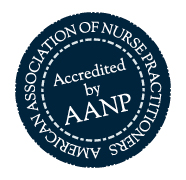National Midwifery Week is September 27-October 3, and Frontier Nursing University is celebrating by hosting an exciting virtual event dedicated to nurse-midwifery. During FNU’s Empower 2020 Year of the Nurse and the Midwife virtual event, hear from passionate leaders in nurse-midwifery who are committed to better care for women and families. We hope you’ll join us! Check back here soon for session info.
Celebrating National Midwifery Week – Successful Collaboration: Obstetricians and Midwives
Join us for this virtual session with Dr. Susan Stone, FNU President and ACNM President, to kick off National Midwifery Week. Dr. Stone will discuss how the ideal situation occurs when midwives, obstetricians, nurses and other healthcare providers work together in collaborative teams. When the best of both professions are brought together in a successful collaboration, women and families benefit.
Find out more »I Wanna Be Part of the Team! Becoming a Nurse-Midwife
This session is for you if you are a current midwifery student or if you are considering becoming a nurse-midwifery student. Join Frontier Nursing University’s Associate Dean of Midwifery and Women’s Health and find out about nurse-midwifery education and how to thrive in the healthcare team. Listen in and hear about real life as a nurse-midwife student and the joys of life as a midwife.
Find out more »We’re All in It Together Midwives, Nurses and Physicians: A Team Solution for a Team Problem
This presentation will describe a CNM-designed quality improvement project aimed at decreasing the length of stay in an obstetrical triage unit. Improved team communication, patient engagement and utilization of nurse-driven orders decreased patient time in triage and increased client and staff satisfaction. Learn how a quality improvement project can target a real clinical problem and produce real results!
Find out more »It’s a Beautiful Day in the Neighborhood: A Community-Based Approach to Improving Perinatal Mental Health
This presentation will explore how empowering women through a shared decision-making process, coupled with community collaboration, can improve the implementation of effective perinatal mental health practices in the obstetric setting and communities at large. Perinatal Mood and Anxiety Disorders (PMADs) can occur in up to 20% of women during the perinatal period and are among the leading cause of complications associated with childbearing. Untreated, PMADs can have far-reaching negative effects on the mother, newborn child, family unit, and society at large. Multiple organizations recommend screening for PMADs and appropriate referral to treatment and follow up during the perinatal period.
Find out more »FREE CE: Maybe There is an “I” in TEAM: IPECS
This presentation will highlight how an Interprofessional Education, Collaboration and Service (IPECS) committee can be your driving and sustaining force on the journey to team based care and interprofessional education. Strategies to create and sustain an IPECS committee will be discussed. Additionally, specific interventions implemented by a OB/GYN IPECS committee will be outlined that promote a shift from a soloist health care culture to a team based culture.
Find out more »The Greatest Action Starts with Good Communication
We often confuse the trauma of childbirth with the trauma of a broken maternity care system. It’s far too common that women describe their births as traumatic and often, it isn’t the pain of childbirth that haunts them. It’s the way they were treated, how they were spoken to and sometimes, how they were ignored.
The medical system trains providers and staff to ask questions that steer people to a destination. They aren’t trained to listen and cultivate relationships through trust and disclosure and far too often, because of this construct, an unnecessary power struggle ensues when pregnant families work to make choices they feel are best for them.Find out more »
Building a Diverse Midwifery Workforce in the United States to Improve Maternity Care Outcomes
The United States has experienced increasing maternal mortality rates over the last 25 years. In fact, each year about 700 women die of pregnancy-related causes and more than 50,000 suffer severe complications but do survive. Women of color suffer at three times the rate of Caucasian women. This presentation will explore how increasing the numbers of midwives as well as the diversity of the midwifery workforce can contribute to improved outcomes. Strategies for attaining these goals will be presented.Find out more »
Maximizing Midwifery: Strategies to Expand Access to the Midwifery Model of Care
By many measures, the maternity care system in the United States is not meeting people’s needs during pregnancy and childbirth. Substantial evidence supports the midwifery model of care as a key strategy to improve outcomes, the experience of care, and at the same time, use resources more effectively. Yet, midwives remain an underutilized resource. This session will explore strategies for advocating for increased access to the midwifery model of care in the U.S.Find out more »
Female Sexual Health and Cancer Survivorship: Art, Science and Quality of Life
 Objectives of this one hour session include:
Objectives of this one hour session include:
- Participants will identify two sexual health concerns women have after treatment for cancer
- Participants will describe how to assess female cancer survivors for sexual health concerns
- Participants will identify two non pharmacologic interventions to address female sexual health concerns




